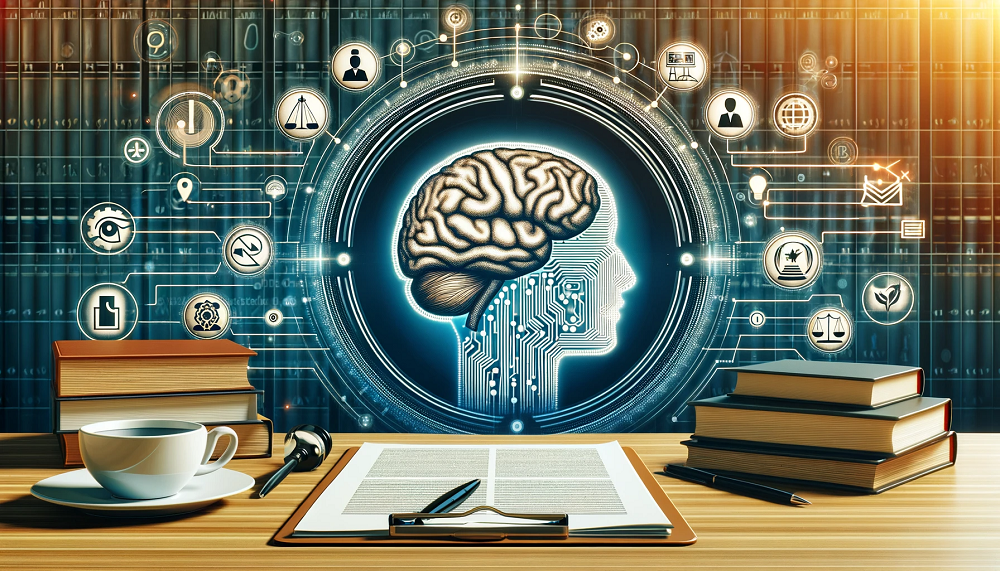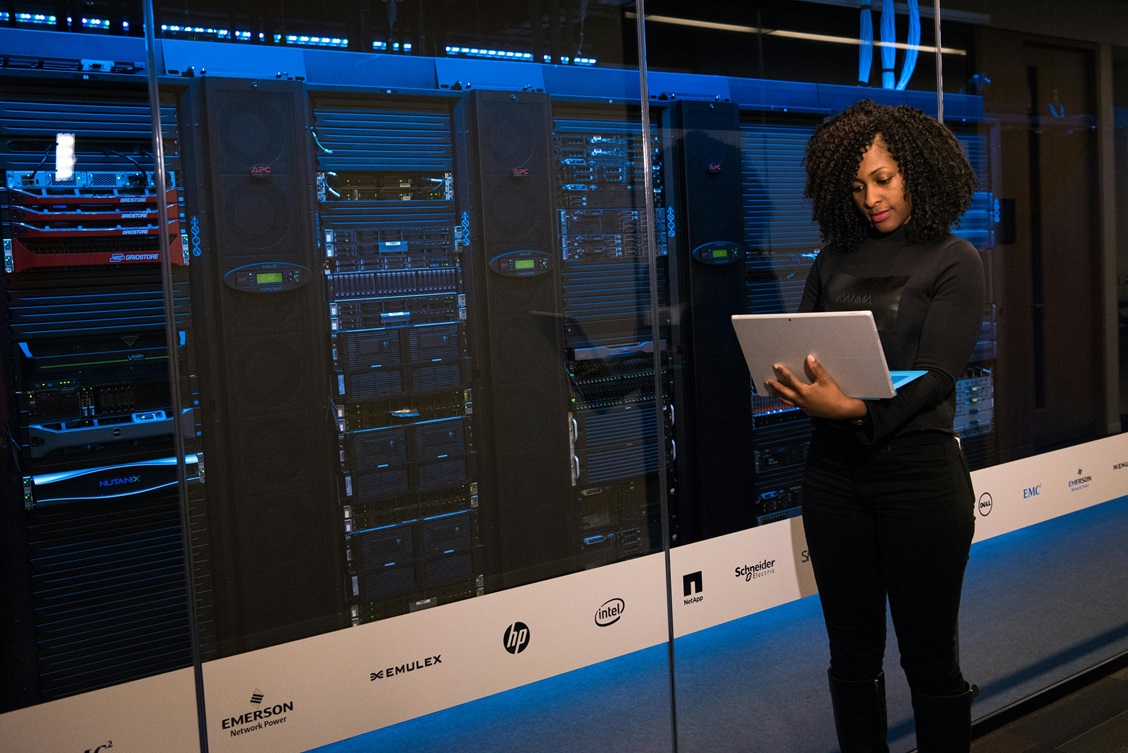 “AI AND THE LEGAL PROFESSION”, By Robin Ghurbhurun, Governing Board, NALP
“AI AND THE LEGAL PROFESSION”, By Robin Ghurbhurun, Governing Board, NALP
AI is impacting us all, and paralegals are no exception. Although it is difficult to predict exactly what the long-term impact will be there are a few areas that are clear already.
Critically for any individual contemplating the use of AI they must develop a solid understanding of data literacy as a foundational skill. AI should not be viewed as a standalone skill, but rather as part of a broader set of competencies that include communication, collaboration, critical thinking, data literacy, digital literacy and problem-solving skills.
It’s also important to understand there is a difference between (what we call) traditional AI and Generative AI.
Generative AI refers to the subset of artificial intelligence technologies capable of generating new content that resembles human-like outputs. These systems leverage vast datasets to produce text, images, code, and more, exhibiting an understanding or mimicry of human-like creativity and reasoning. Unlike traditional AI, which primarily focuses on interpreting or classifying existing information, generative AI takes a proactive role in tackling tasks. It can generate new content based on learned patterns, summarise large documents and interpret trends from unstructured data – all with limited guidance.
How is AI already impacting the legal sector?
Law firms (such as Clifford Chance) are announcing pilots and trials in collaboration with major software companies. These mostly remain internal to law firm work rather than involving client service delivery or client information, at present. Most common applications are Risk Identification and Prediction, Administration, Profiling, Search and Text Generation.
The Jisc legal team has recently implemented an AI solution provided through a law firm and developed in collaboration with a major AI platform. They are using this to accelerate contract reviews and are exploring applications in contract management.
As with every technological new dawn, there could be a danger of fatigue with so many software companies claiming to be about to ‘revolutionise’ the legal sector. However, it is clear that the legal sector is already finding opportunities to leverage AI for efficiency, accuracy and innovation.
According to McKinsey and IDC in 2022, 50% of all organisations surveyed already report using generative AI. Legal teams and firms need to find ways to align themselves with this technological upheaval to remain competitive.
Research firms are sketching a future whereby generative AI not only augments the capabilities of legal professionals but introduces new paradigms for legal practice. This begins with conversation AI and extends to entirely new AI-generated applications. The potential transformation is vast. But the rapid pace of evolution requires caution, especially when choosing foundational AI technologies to kick-off your organisation’s AI journey.
For law firms poised to thrive in the generative AI revolution, there’s a choice of pathways. Do you buy off-the-shelf software? Do you privately label your own GPT? Or, do you build your own private GPT from scratch? In choosing which path to take, make sure you consider the present and future to achieve your desired outcome.
Looking to the future
AI is clearly transforming how we approach, execute, and innovate in our work. With the capacity to automate up to 40% of the average workday, the implications for efficiency and productivity are profound, especially in sectors reliant on the processing and analysis of vast information volumes, such as the legal field.
The legal profession stands at a pivotal moment, with generative AI poised to transform the landscape of legal work fundamentally. Law firms and legal professionals are encouraged to embrace this shift, not as a distant future, but as an unfolding reality that demands engagement, exploration, and adaptation. The greatest impact will be speeding up response times across the industry (especially where summarising large swathes of information), full adoption of dynamic contract management and automation capable of updating business intelligence and responding to changing risk factors.
According to Gartner, by 2025, 30% of enterprises will implement AI-augmented strategies. This suggests a move toward more sophisticated legal analytics and predictive modelling, enhancing precision in case outcome predictions and legal risk assessments. By 2026, the integration of AI colleagues into work processes will facilitate a collaborative model where AI assists in legal research, case preparation, and even mundane administrative tasks, enabling lawyers to focus on higher-value activities. By 2027, the emergence of applications automatically generated by AI without human involvement will revolutionise legal software development, making custom solutions more accessible and affordable for law firms of all sizes.
For Paralegals, the deployment of AI tools, will likely lead to work involving more nuanced business-led advice rather than collation and administration of data, plus there will be a focus on quality control and the optimisation and safeguarding of contractual arrangements. There’s also an opening for Paralegals to up-skill and become expert legal “prompt writers” (used for effective training and deployment of legal AI).
Prompt engineering is more than just a trend, it is a fundamental shift which is reshaping the way legal professionals interact with technology to enhance their work. Criticality, in law the stakes are high: a poorly constructed prompt could lead to misinterpretation or legal inaccuracy, whereas a well-designed prompt can provide accurate, reliable results that are critical to legal decision-making. Consider the example of an AI tool used for contract analysis. A well-designed prompt can help the tool not only identify key clauses and terms, but also understand their implications in different legal contexts. This capability transforms tasks such as contract review, due diligence and even legal research, saving countless hours while improving accuracy.
Legal prompt engineering is a multidisciplinary field that requires a deep understanding of both law and AI. Mastering the field requires not only familiarity with legal terminology and concepts, but also an understanding of how AI models process and respond to language. This dual expertise can be challenging, but it is essential to the development of effective legal AI tools – and there is certainly an opportunity for Paralegals here.
It’s worth noting that currently even generative AI can only produce ‘new’ content by recycling what it has already been trained on: “Garbage In Garbage Out” – the quality of output is determined by the quality of the input.
Should we be worrying about AI or embracing it?
In most systems already in use which employ AI, the technology acts to support and improve the work of humans. Where firms are using such tech, there are signs that increasingly familiarity is not only helping them to use it effectively, but it is also overcoming any concern that the use of AI could in some way replace humans. Most surveyed workers say that AI has improved both their performance and their working conditions.
A human (Paralegal) interface with AI will be essential for the foreseeable future particularly in areas such as identifying AI “hallucination” of detail in responses and verifying outputs generated. For example, Chat GPT can be prone to “hallucinations” or inaccuracies. In one example ChatGPT falsely accused an American law professor of sexual harassment and cited a non-existent Washington Post report in the process. Chatbots are trained on a vast trove of data taken from the Internet, although the sources are not available in many cases. Operating like a predictive text tool, they build a model to predict the likeliest word or sentence to come after a user’s prompt. This means factual errors are possible, but the human-seeming response can sometimes convince users that the answer is correct.
Paralegals could verify the identity of clients, catch fraudulent transactions and AI voiced phishing scams, and help identify where legal liability lies in the AI value chain: providers (creators) or deployers (users). AI cannot make these distinctions itself, Paralegals can.
Preparing for a future with AI
So, how can Paralegals prepare for a future with AI, what do they need to consider today to be ready for tomorrow?
I believe, Paralegals should focus on targeted applications of AI rather than novelty factors. Developing their understanding of how automation can benefit a firm or in-house team will put them in a great position to the lead the AI transition. It’s worth remembering that, very often, it is the Paralegals who have the best insight into the day-to-day processes required to keep a practice running effectively.
Paralegals are also well positioned to explore the opportunities that AI brings and therefore act as a vanguard of AI experts who understand where AI adoption will bring the most benefit, while also having an understanding of the limitations and pit falls of the technology.
ABOUT THE AUTHOR
Robin Ghurbhurun sits on the Governing Board of the National Association of Licensed Paralegals (NALP) and is MD for Further Education and Skills at Jisc. NALP is a non-profit membership body and the only paralegal body that is recognised as an awarding organisation by Ofqual (the regulator of qualifications in England). Through its Centres around the country, accredited and recognised professional paralegal qualifications are offered for those looking for a career as a paralegal professional.
Web: http://www.nationalparalegals.co.uk
Twitter: @NALP_UK
Facebook: https://www.facebook.com/NationalAssocationsofLicensedParalegals/
LinkedIn – https://www.linkedin.com/company/national-association-of-licensed-paralegals/
Editor’s Note: Thank you very much to Robin for this excellent article on AI in the legal profession. See also WardBlawg’s guide to some of the best AI tools for law firms here.



